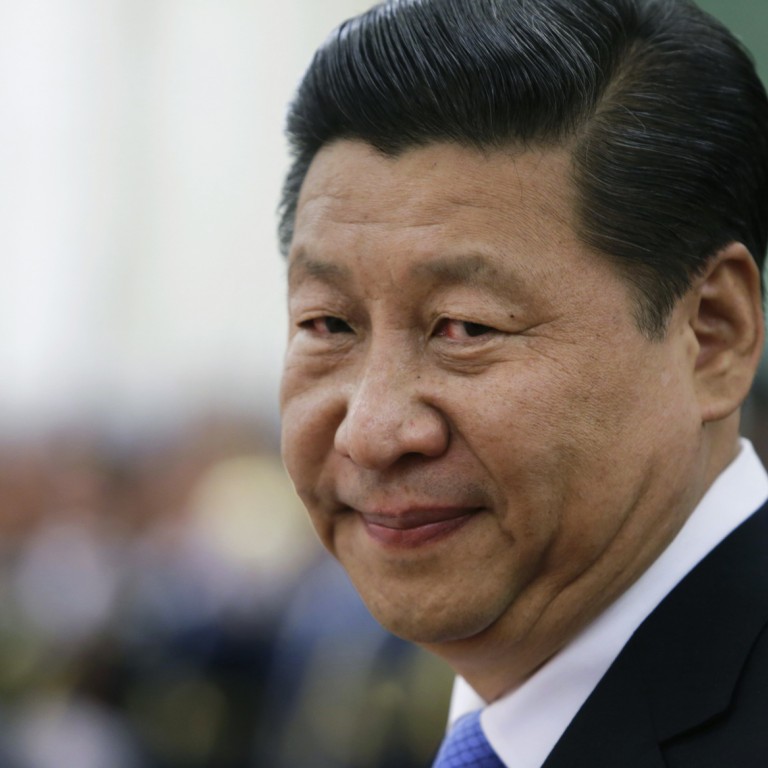
China reform pledges show Xi assuming Deng mantle, analysts say
By claiming authorship of broad reform pledges after repeated conservative pronouncements, China’s President Xi Jinping is assuming the mantle of Deng Xiaoping, who oversaw both huge economic changes and the Tiananmen crackdown, scholars say.
Days after the conclusion of a key gathering known as the Third Plenum, China’s Communist Party leaders unveiled a list of sweeping changes to economic and social policy.
They included reforms to the country’s land ownership system, loosening controls over state-owned enterprises, relaxing the controversial one-child policy and eventually shuttering forced labour camps.
The 22,000-word document explicitly declared Xi as head of the group charged with its drafting - a marked departure from previous administrations that suggests he is linking his own personal prestige to the planned changes, according to experts.
Xi Jinping seems to think that he can take the current political system and instil it with more discipline, mass supervision and a tough assault on corruption
“It was pretty surprising,” said Barry Naughton, a professor at the University of California, San Diego, and an expert on China’s economy. “He said, ‘I was the head of the writing group.’ That’s a very strong and unambiguous thing to say, and there’s also the fact that he said it rather than leaving it unsaid.”
In a story on Tuesday on the way the decision was drawn up, the official Xinhua news agency mentioned Xi 21 times, while Premier Li Keqiang was not named at all.
Like Deng, the man who led China from 1978 to 1992 and launched the country’s boom following the death of Mao Zedong, Xi has made economic reform a top priority, experts say.
Deng is viewed as having steered China politically further towards authoritarianism, but some scholars argue that he actually envisioned greater restructuring of the political system.
Xi’s first year in office has seen a high-profile campaign to tackle graft and a revival of some Mao-era practices such as “self-criticism sessions” for public officials.
“Xi Jinping in a way actually seems to think that he can take the current political system and instil it with a little more discipline and a little more mass supervision and a tough assault on corruption, and I guess combine that with economic reform,” Naughton said.
“So, in a way, that’s more Dengist than Deng, because it’s a more active pursuit of the political side of it.”
But Xi has also presided over a tightening of control over the press and public expression, particularly on China’s social media, and an unknown number of activists, even some campaigning on his signature issue of corruption, have been detained.
Perry Link, a professor at the University of California, Riverside, and a renowned China scholar, cautioned that despite the attention-grabbing nature of the promises issued by the Third Plenum, they amounted to “language only”.
“Just one example: the announcement that the reform-through-labour system will be abolished is designed to make the Chinese people and the world feel better about the party, to give it more ‘legitimacy’.
“But the leaders can easily continue using the same system under a different name, if they like, or under no name at all. Whatever they put in pretty language, the hard fact is that repression has grown much worse in recent months. We need to watch actions, not words.”
The pledges on the market, state enterprises and other aspects of the economy have been largely welcomed by analysts, with ANZ economists even raising the prospect of “a golden decade of sustainable growth and unparalleled prosperity”.
But while the economic reforms pay heed to Deng, Xi’s stamping of his name on the reform document suggests he is seeking to accumulate power, contrary to Deng’s own admonitions, said Willy Lam, a Chinese politics specialist at the Chinese University of Hong Kong.
“Right now, it seems Xi Jinping has gathered more power in his hand than (former president) Jiang Zemin even at the height of his power in his last five years,” Lam said.
“It’s very unusual,” he added. “And I think, presently speaking, it’s of course unhealthy for one individual have amassed so much power.
“It goes against one of the major reforms of Deng Xiaoping, and that is to promote a collective leadership. That was the lesson that everybody learned from the Cultural Revolution.”
